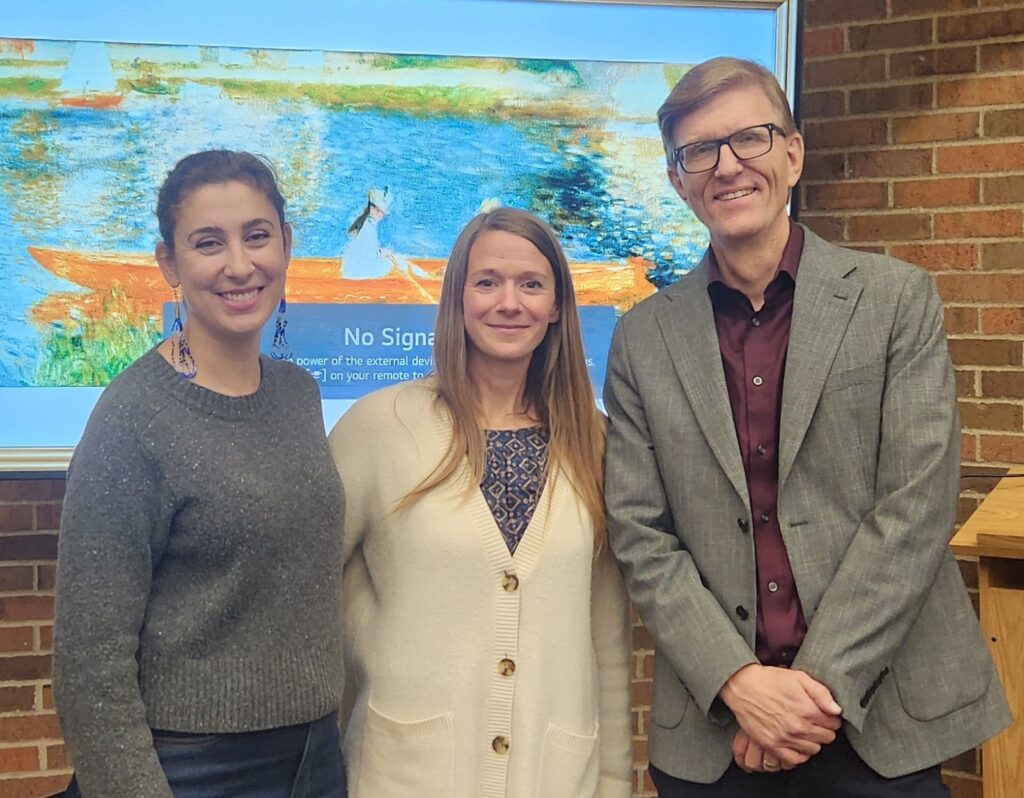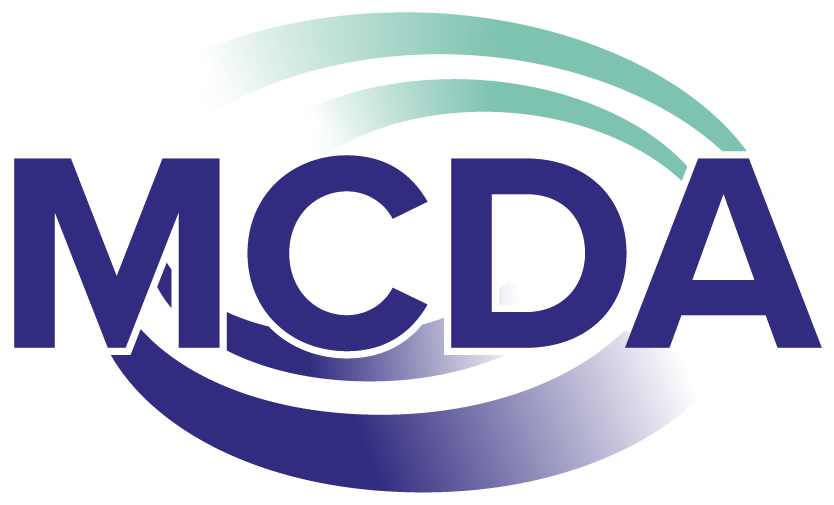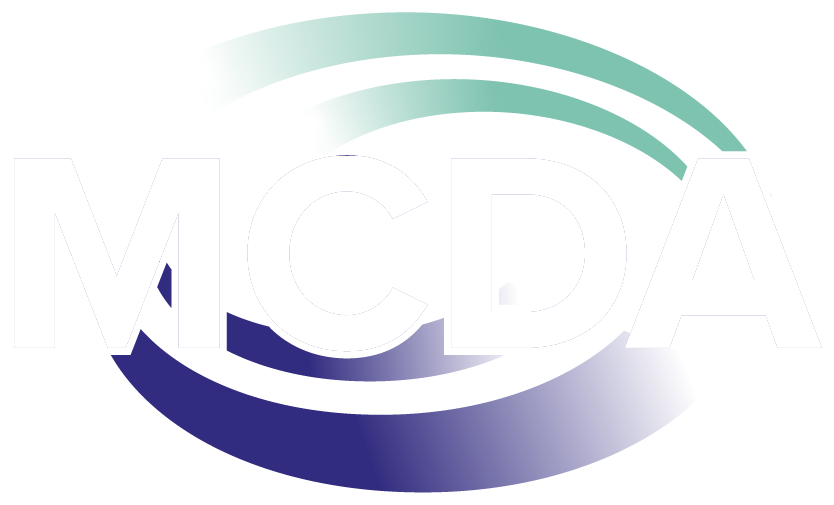
The Minnesota Career Development Association (MCDA) hosted the professional development event Motivational Interviewing: A Holistic Tool for Career Counselors on November 7th, 2025.
Three workforce development staff from Goodwill-Easter Seals presented:
- Allen Mavis, Senior Specialist Workforce Development
- Nicole Hilgendorf, Workforce Development Manager
- Avery Bardell, GCDF, Workforce Development Manager
Presenters introduced the concept of Motivational Interviewing (MI). Motivational Interviewing is a tool that can be used to help someone through change. A basic belief of Motivational Interviewing is that career clients have more knowledge of themselves than career counselors do, and counselors should seek to guide participants through their desires for change. This concept can be applied to support individuals throughout their job search. MI can help facilitate client success.
Motivational interviewing is composed of three core tools: open-ended questions, giving affirmations, and offering reflections. These core tools can help career counselors identify ambivalence, ambiguity, and uncertainty related to change and help clients identify their own desires for change.
Effective motivational interviewers must possess the “Spirit of Motivational Interviewing.” This is an attitude that seeks to draw out the wisdom, ideas, and motivation that clients carry within themselves instead of professionals imposing their own ideas on their clients. It is comprised of collaboration, compassion, acceptance, and empowerment. Without using the Spirit of Motivational Interviewing, clients can feel unrespected, invalidated, resistant, and can withdraw. With the Spirit of Motivational Interviewing, clients feel affirmed, accepted, and engaged.
Using motivational interviewing can help career counselors support their clients toward achieving target behaviors. Target behaviors are defined by the client, within a client’s control, and help the client move towards their goals. When discussing target behaviors, it is important to identify the variables and potential barriers clients could face.
Motivational Interviewing includes 4 different stages: Engaging, Focusing, Evoking, and Planning.
- Engaging: seeks to develop a relationship with trust and openness to communicate.
- Focusing: seeks to establish a jointly accepted topic that is relevant to a client’s desires to change.
- Evoking: seeks to draw out a client’s perspective for shared understanding. In this stage, the 3 tools of motivational interviewing are used (open-ended questions, affirmations, and reflections). The client’s empowerment starts within the evoking stage.
- Planning: seeks to set goals, schedules, timelines, and desired outcomes.
It is important to note that these stages are not intended to be a linear or mechanical process. Clients often move between stages at varying times as they work towards their goals for change.
Key takeaways regarding motivational interviewing:
- Motivational Interviewing is client-centered.
- The professional using motivational interviewing must be an empathetic thought partner.
- Motivational interviewing helps clients find their own reasons to change.
- Motivational interviewing is about exploring and resolving mixed feelings about change.
In addition to the presentation, attendees of the event were able to engage in breakout groups to practice Motivational Interviewing and explore how one would use the concepts to support career clients.
Brandon Beaulieu, CCSP, GCDF| He/Him/His
Career Navigator
MCDA Professional Development Committee Chair, 2025-2026


